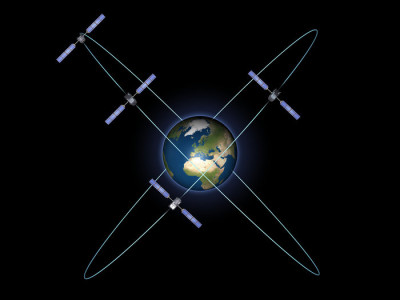
Galileo’s current four-satellite constellation will be increased by two in August. Photo courtesy of ESA’s P. Carril
The Galileo constellation will be two satellites closer to functionality after the launch scheduled for the middle of August. There are currently four operational Galileo satellites in orbit. Galileo will not be considered fully functional until all 30 satellites are in position and functional. The two newest satellites will be launched in from French Guiana on August 21, 2014.
Unlike the U.S. GPS satellites, the Galileo system is expected to be extremely accurate with the ability to determine positions within a few centimeters when fully functional. The goal with the satellite constellation is to have anywhere from six to eight satellites visible from anywhere on the planet, as opposed to the original four necessary when GPS was first implemented.
Galileo is also notable because it will be the first GNSS system that is completely controlled by civilians. According to their website, one of the main goals of this system is to help with search and rescue style operations in addition to generic positioning uses.
The current estimate for when Galileo will be fully operational is sometime in 2018, but if it is as accurate as they say, I expect we’ll quickly see many platforms and GPS device manufacturers switch to Galileo. I mean, who wouldn’t want a more reliable and accurate signal?
